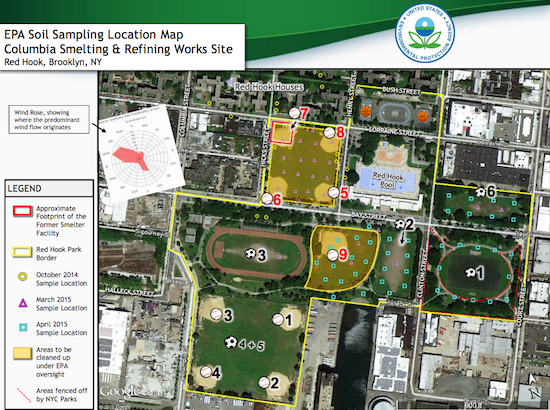EPA to update public on state of contaminated Red Hook ball fields
Red Hook Vendors Struggle Due to Closures; Schools Must Find New Athletics Fields

A 2016 Environmental Protection Agency Soil Sampling Location Map. Photo courtesy of U.S. EPA
The Red Hook ball fields have long been plagued by uneven playing surfaces, puddles of water and trash. Student-athletes who utilize the fields are all too familiar with the miscellaneous drug paraphernalia, used contraceptives and broken glass that litter the grounds.
More recently, however, the fields have been beleaguered with a different dilemma: widespread soil contamination.
Due to high amounts of lead found in the ground, several soccer and baseball fields have been closed for several months as the U.S. Environmental Protection Agency (EPA), along with the city Department of Parks and Recreation, conducts a $105 million remediation plan.
